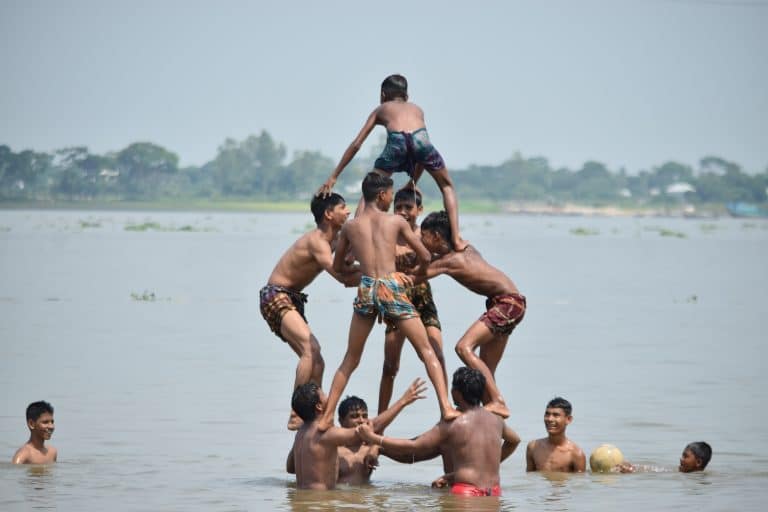
Children in Bangladesh will benefit from the Government of Sweden’s new contributions of four million dollars to UNICEF. One grant will improve water safety, sanitation and hygiene for children, women and communities, while a second focuses on empowering adolescents, particularly from marginalized communities.
While Bangladesh has made significant progress towards improving drinking water and eliminating the risk of arsenic contamination, there are still challenges to overcome.
“Our goal is a Bangladesh where every child has access to safe and clean water, basic toilets, and good hygiene practices so that all children can thrive and have a healthier start in life,” said Mr. Sheldon Yett, UNICEF Representative to Bangladesh.
With previous support from Sweden, UNICEF has developed practical and innovative models for arsenic free water systems. The Government of Bangladesh will now scale up these models by investing $240 million of its own budget into arsenic-safe water hardware. This will improve the water safety for 20 million people – 5.4 million of them children – in highly arsenic-affected rural areas. The new $2 million contribution from Sweden represents the bridging phase of a larger contribution and will enable UNICEF to provide the technical assistance which will ensure that the new systems meet national safety standards.
Arsenic is a naturally occurring metallic element found in some ground water. It can cause skin lesions, cancer, and developmental and cognitive damage to children. Methods to tackle the problem include drilling deeper wells and substituting high arsenic ground water with other suitable water sources, such as rainwater and treated surface water.

Over the last four years, through UNICEF’s work with partners, and with support from the Government of Sweden, 2,500 new safe water points are now serving over 300,000 people, and nearly half a million people have benefited from hygiene education and improved latrines. In addition, 261 villages have been declared arsenic safe.
A second additional grant to UNICEF of two million dollars from the Government of Sweden will support a broad programme of interventions to improve the health, nutrition, protection and life skills of adolescents, particularly those from disadvantaged backgrounds in Dhaka, Gazipur, Barishal and Patuakhali.
The programme includes comprehensive sexuality education and mental health services. It will also support adolescents to participate in programmes to address the impact of climate change in their communities.
“By investing in adolescents, we strengthen their ability to build a brighter future for themselves, their families and communities,” Mr. Yett added.
HE Alexandra Berg von Linde, Ambassador of Sweden to Bangladesh, said “Sweden has been supporting Bangladesh since its independence in improving the Sexual and reproductive health and rights (SRHR) of adolescents. Increasing access to SRHR will help to create an enabling environment for adolescents for unleashing their full potential. Sweden is also happy to contribute to expanding the water, sanitation, and hygiene facilities for the poor and vulnerable population. Women, children and adolescents are at the center of the Swedish development cooperation.”
In partnership with UNICEF, Sweden has supported Bangladesh in the areas of urban health for slum dwellers, climate change, adolescent SRHR, the multisectoral response to COVID-19, sanitation, hygiene, and arsenic mitigation with the aim to improve the living conditions the poor and the distressed. In Bangladesh, Sweden supports UNICEF with approximately SEK 292 million ($32.2 million). Globally, Sweden is the sixth largest donor of UNICEF.